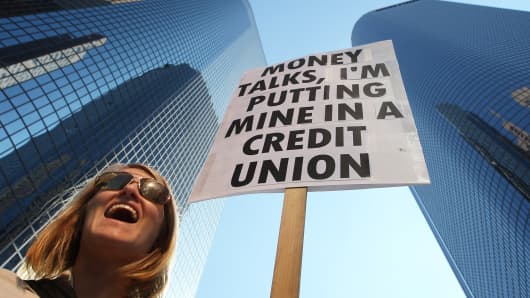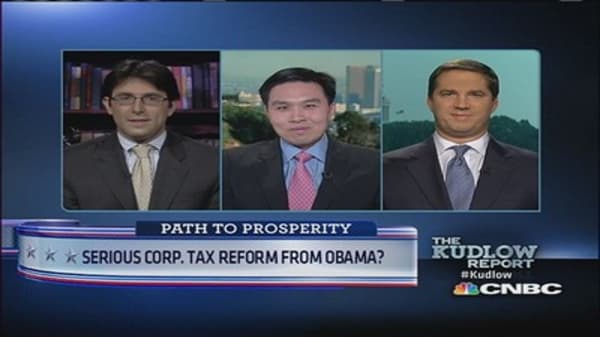So too are the credit unions.
"We're dealing with his head-on and getting our message out," said Dan Berger, president and CEO of the National Association of Federal Credit Unions, which is spearheading an email and call-in effort to lawmakers this week.
"Congress knows the value of credit unions," he said. "We were the only group lending to small businesses during the financial crisis. Our not-for-profit status shows that for us, it's not about stockholders, but about our members."
"If we lost the exemption, we'd be just like the banks," Berger said. "We don't want to be like them."
Credit unions, unlike banks, are not-for-profit, member-owned cooperatives. They have no shareholders and elect their boards of directors using a one-person, one-vote system, regardless of the amount individuals have invested.
Though products can vary, most credit unions are set up to offer more competitive interest rates and credit than banks and provide services like no-fee checking. Many are set up to directly support community development.
Only members of the credit union can deposit or withdraw funds, and the members usually, but not always, belong to a labor union, religious group or are employees of one company. Credit unions differ in terms of size and asset value.
(Read more: Now it's the 43 percent: Fewer paying no income tax)
It was under a 1934 law called the Federal Credit Union Act—and partly due to the devastating national bank collapse from the Great Depression—that credit unions got a federal tax exemption because "credit unions are mutual or cooperative organizations operated entirely by and for their members." They still must pay state and local taxes.
Though their numbers have been historically small, credit union membership has seen dramatic growth. It surged to 95.7 million by March of this year, an increase of 2.7 million from the start of 2012. That growth over five financial quarters was more than the previous 11 quarters, according to SNL Financial.
Credit unions are now a $1 trillion industry. They hold 6 percent of all financial assets in the U.S., compared with banks' 93 percent.
"Banks are trying to have it all and drive credit unions out of business with this push to end the tax exemption," said Tony Cherin, a professor of finance at San Diego State University and a board member of the USE Credit Union in San Diego.
"They've seen the growth of membership as a result of the recession, and they're crying in their beer," he said. "They don't like the idea that credit unions can offer lower rates."
"That's not true," said the ABA's Ballentine. "We welcome the competition. Banks compete against each other every day. What we want is a level playing field."





